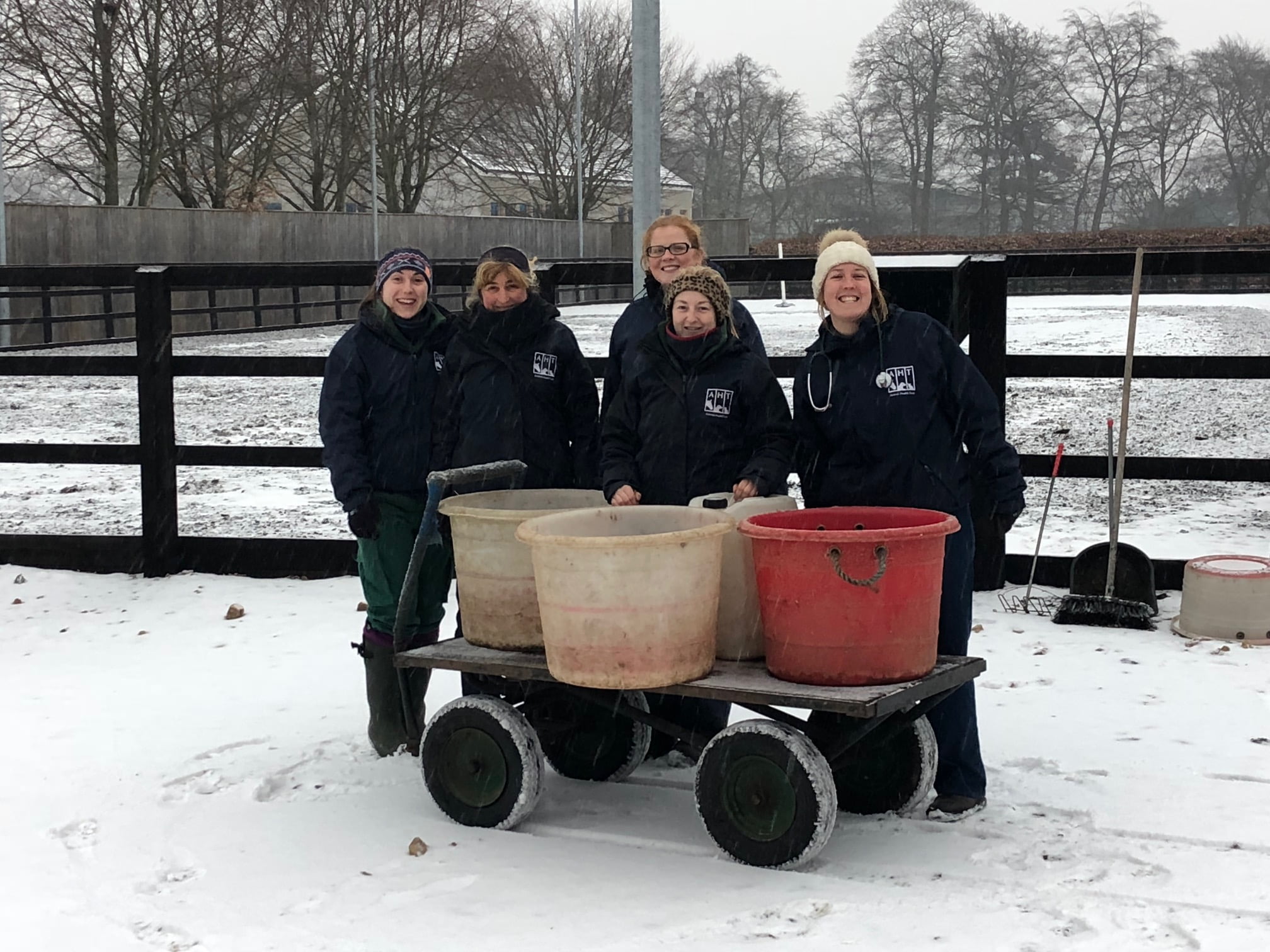‘Beast from the East’

The Animal Health Trust is a unique organisation with over 200 staff working hard to deliver expert science and care for sick and injured animals 24-7, 365 days a year. We believe the best treatment relies on the best knowledge, so the things we learn from treating sick and injured animals in our care we share with other vets to help animals get the best treatment, all over the world.
When a bout of bad weather arrives, such as the ‘Beast from the East’ in February of this year, this can reap havoc for our busy veterinary referral clinics which are delivering lifesaving treatments and hospital standard care day and night, every day. Between our small animal clinic, which specialises in treating very sick and injured dogs and cats, and our equine clinic, we’re treating over 3,000 new patients every year, as well as patients who come to us for regular treatment and check-ups. This keeps us very busy and luckily our passionate and dedicated staff are extremely tough, always putting the animals first, and battled the bad weather conditions for a week when heavy
snow came to Suffolk this year.
For our equine clinic, the snow and the extreme cold proved quite problematic. The taps on our yard were frozen solid all week so the team had to use water containers to fill the horse’s waters and they also had to dig out the snow on the arena every day to make sure the horses could still be exercised safely and observed by our vets as part of their care and rehabilitation. The snow and ice made exercise and toilet breaks for the poorly pets recovering in our small animal clinic problematic, too, but our vets and vet nurses got through the unusual challenges the weather posed with excellent team work.
We also like to help pet owners all over the country to care for their pets at home during cold snaps, and, where possible, prevent them falling ill. Animals can inadvertently get sick from consuming products such as anti-freeze and rock salt, toxic substances many pets may not have come across before, or at least not in the quantities in which they would have been used this winter.


